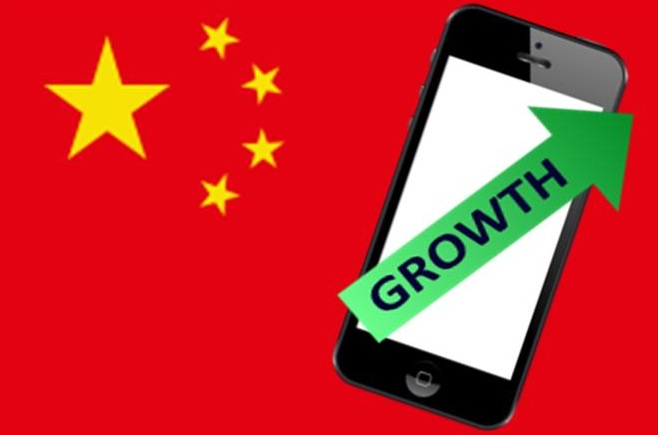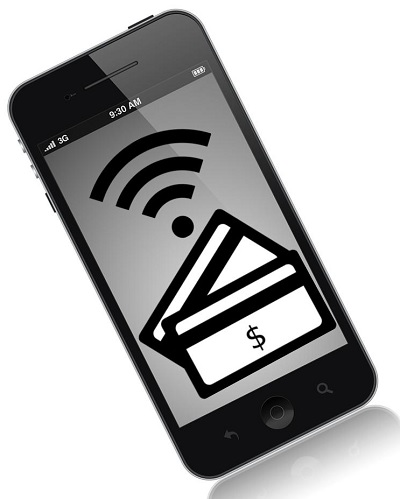Report highlights the impact that mobile payments are having on digital retail
Mobile payments are gaining momentum in China. According to a new report from Forrester Research, the country is becoming one of the most active and fastest growing mobile commerce markets in the world. The report notes that e-commerce spending is on the rise, powered by the growing number of people that are using their mobile devices to shop online and make purchases. By 2019, the Chinese online spending space is expected to reach more than $1 trillion.
Companies may benefit from more mobile commerce activity
This may be good news for companies like Alibaba and Tencent, which have become heavily involved in the mobile payments space. Both companies are currently vying for dominance among mobile consumers, with Alibaba holding a lead. Online retailers have been enjoying the growth in digital spending, as they have managed to find new ways to engage consumers in an effective manner.
China is the largest online retail market
 China is currently the world’s largest online retail market. In 2013, more than $307 billion in online sales were made throughout the country. According to Forrester Research, more than $440 billion is expected to have been made in online sales during the last year. The growing prevalence of mobile payments services is making this growth possible. Many payment firms have begun to emerge in China, looking to support the adoption of mobile commerce and make this sector more accessible to consumers. The country’s banks have also begun supporting mobile payments.
China is currently the world’s largest online retail market. In 2013, more than $307 billion in online sales were made throughout the country. According to Forrester Research, more than $440 billion is expected to have been made in online sales during the last year. The growing prevalence of mobile payments services is making this growth possible. Many payment firms have begun to emerge in China, looking to support the adoption of mobile commerce and make this sector more accessible to consumers. The country’s banks have also begun supporting mobile payments.
Mobile payments are expected to become more common and better supported in the coming years
In the coming years, China will likely continue proving itself to be a promising mobile commerce market. New mobile applications that support transactions are likely to become more common and consumers are expected to rely more on the Internet when they are shopping for products. As such, retailers are expected to place more focus on the mobile and digital spaces in the hopes of connecting with consumers that exist therein.
Samsung rumored to be ready to reveal new payments service along with its new devices
Samsung is gearing up for the unveiling of its new Galaxy S6 smartphone, as well as several other devices, but it’s the company’s push into the mobile payments space that may generate a veritable tidal wave of hype. Samsung is set to host it’s Galaxy Unpacked event at the beginning of March, and many industry analysts believe that the company will showcase its new mobile devices during that time. They also suggest that Samsung will announce its new mobile payments system, called Samsung Pay.
Galaxy S6 may support Samsung’s entry into the mobile commerce sector
Samsung is expected to reveal the new Galaxy S6 at its upcoming event, as well as the Galaxy S6 Edge, which features a dual-edge display. These devices will be the next step in the evolution of Samsung’s already rampantly popular Galaxy brand and they are expected to support the company’s potential bid for dominance in the mobile payments field. Samsung Pay is rumored to be based on technology developed by LoopPay, a mobile commerce firm that has recently partnered with Samsung.
Samsung Pay may make use of technology developed by LoopPay
 Reports suggest that the new payment service will take advantage of a non-swipe fingerprint scanner that will be featured in the Galaxy S6. This will allow users to place their finger on the device’s Home button to unlock the phone and authenticate mobile transactions. The new service from Samsung will also use a tokenization system that has been developed by LoopPay. Tokenization has become quite popular in the mobile payments space as it removes the need to use a consumer’s financial information directly, replacing this data with digital tokens.
Reports suggest that the new payment service will take advantage of a non-swipe fingerprint scanner that will be featured in the Galaxy S6. This will allow users to place their finger on the device’s Home button to unlock the phone and authenticate mobile transactions. The new service from Samsung will also use a tokenization system that has been developed by LoopPay. Tokenization has become quite popular in the mobile payments space as it removes the need to use a consumer’s financial information directly, replacing this data with digital tokens.
Tokenization could make mobile payments more secure
A tokenization system could give Samsung Pay a competitive edge over other payment services. Because mobile commerce deals in the trafficking of financial information, it has become a popular target for malicious groups that seek to exploit this information. With digital tokens, there is no direct use of financial information, and these tokens can help make mobile payments much more secure than they are currently.
 China is currently the world’s largest online retail market. In 2013, more than $307 billion in online sales were made throughout the country. According to Forrester Research, more than $440 billion is expected to have been made in online sales during the last year. The growing prevalence of mobile payments services is making this growth possible. Many payment firms have begun to emerge in China, looking to support the adoption of mobile commerce and make this sector more accessible to consumers. The country’s banks have also begun supporting mobile payments.
China is currently the world’s largest online retail market. In 2013, more than $307 billion in online sales were made throughout the country. According to Forrester Research, more than $440 billion is expected to have been made in online sales during the last year. The growing prevalence of mobile payments services is making this growth possible. Many payment firms have begun to emerge in China, looking to support the adoption of mobile commerce and make this sector more accessible to consumers. The country’s banks have also begun supporting mobile payments.
 Reports suggest that the new payment service will take advantage of a non-swipe fingerprint scanner that will be featured in the Galaxy S6. This will allow users to place their finger on the device’s Home button to unlock the phone and authenticate
Reports suggest that the new payment service will take advantage of a non-swipe fingerprint scanner that will be featured in the Galaxy S6. This will allow users to place their finger on the device’s Home button to unlock the phone and authenticate 